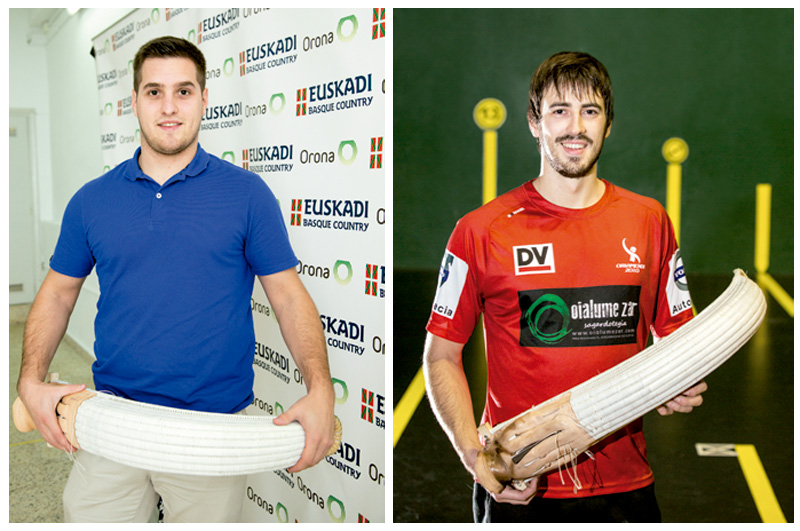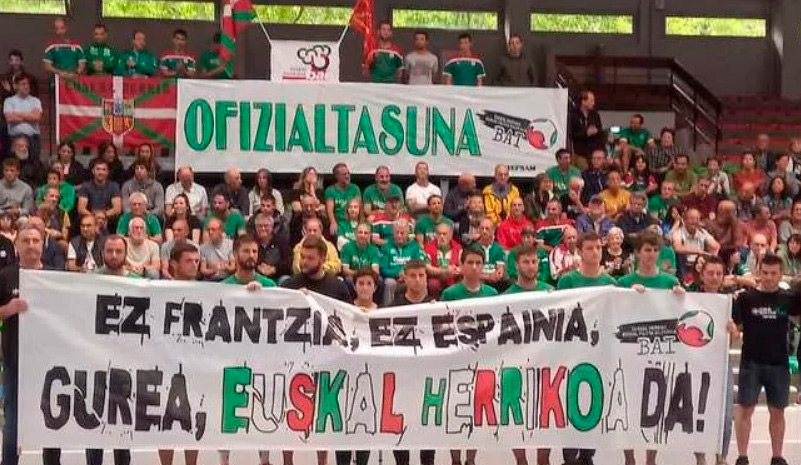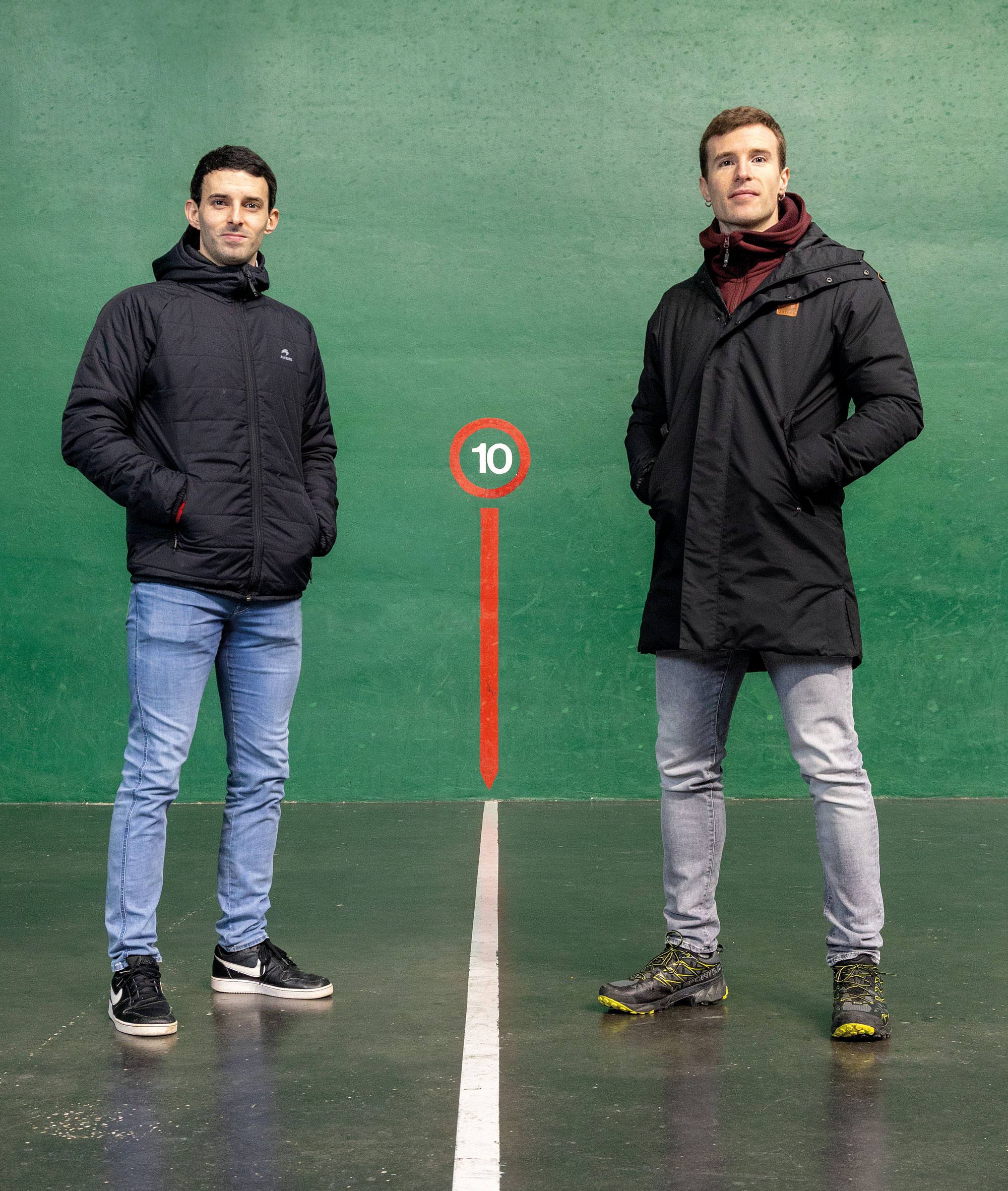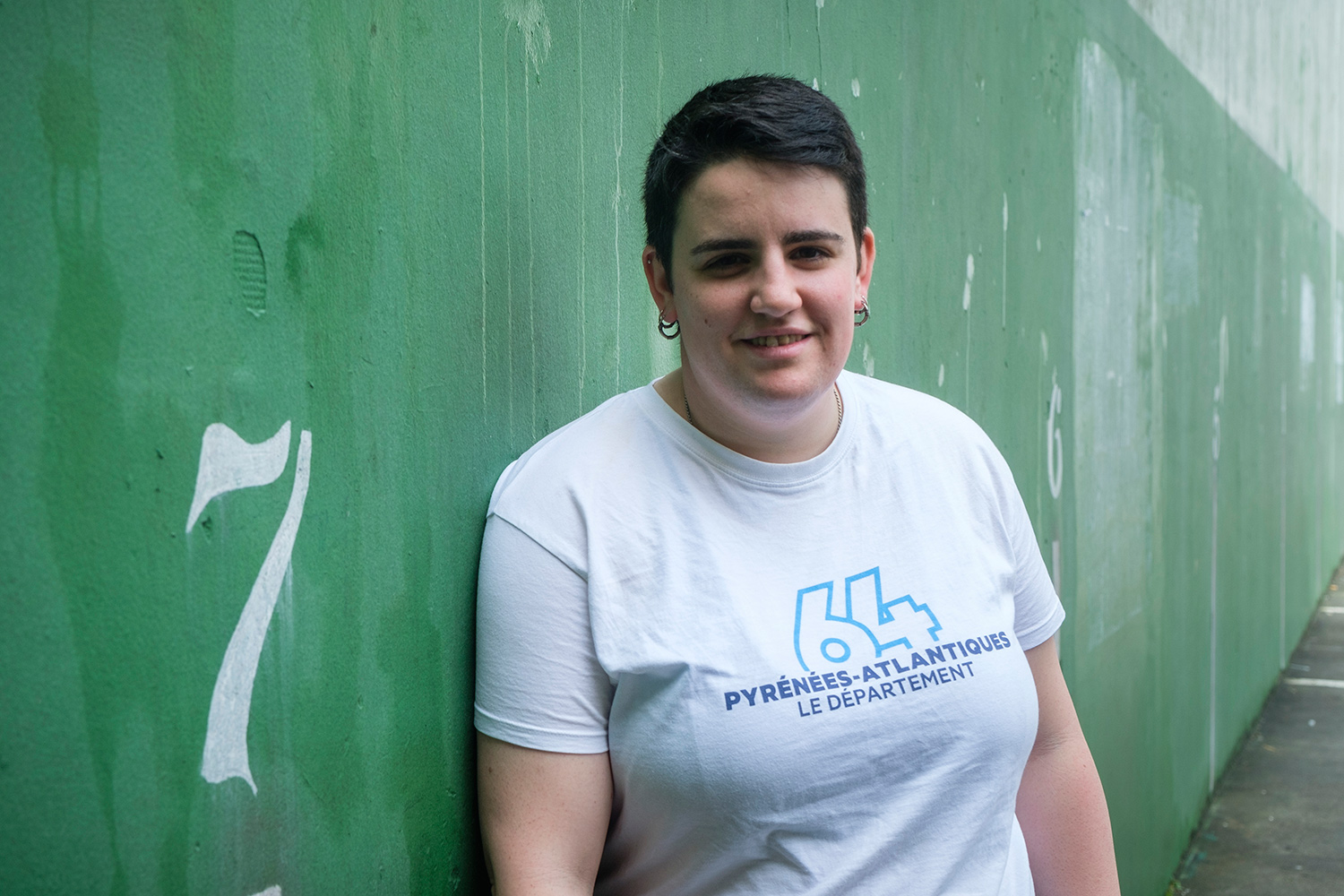"You can't live off the rails."
- They are young, but not new. The remontists Josetxo Ezkurra (Doneztebe, 1992) and Endika Barrenetxea (Hernani, 1990) have been at the highest level for several years and are well aware of the ups and downs that this sport has suffered in recent years, from the crisis that left the remonte on the verge of dying to the rebirth for love of play. The Couples Championship was held at the Galarreta fronton of Hernani. Ezkurra II is with Ion, Barrenetxea IV with Segurola.

How did you start the competition?
Bellota: The sanguilla is pretty evenly matched. From the first to the last there is a difference of four points, that is, from one party. [Ezkurra and Ion have already managed to move to semi-finals]
Barrenetxea: We are the couple that gave him the best start, along with Koteto Ezkurra and Etxeberria III.arekin. We cannot complain, but we want to mathematically secure the ticket for the semi-finals.
You have 30 people at the highest level. Is the mountain healthy?
Bellota: The two major championships are encouraged to see more people, especially in semi-finals and finals. More people arrive on Thursdays, as there is a greater supply of ball by hand, football and other sports. We cannot compete with these sports.
Barrenetxea: As far as sportsmen and women are concerned, there are quite a lot of people, but the timetable is met, as demonstrated by playing more games than in previous years. Yes, it is clear that the fact that there are more people would give us more peace of mind. It has sometimes happened to us that the remontists are injured at the same time, and in those cases the rest of the pelotaris are forced to tighten.
The remonte suffered a critical situation a few years ago.
Bellota: I had not made my debut yet, but it is true that the remonte was in a kind of impasse a few years ago, that it went ahead or that it stayed there. The company Oriamendi 2010 made an effort, creating a new project, and has been turned around with enthusiasm. In addition, in collaboration with the Foundation of the Government of Navarra, some steps have been taken for the dissemination of the clearing: Not long ago we played in Zaragoza. This is intended to attract new people.
Barrenetxea: We took Oriamendi 2010 as a float. We saw that when the previous company closed the ship on the rebush it was sinking; the water was up to the neck and we ran out of mango. Oriamendi 2010 was the only one that took the step of revitalising this fact at the time. Then, faced with the difficulty of reaching the end of the month, the company offered us new ways. We chose one of them, working as a cooperative. At first that has cost to internalize it, because when the first month comes and 60% of the above is charged, people say “I have worked as much as before and I have paid less”. People do not know how to drive and leave because they have not been able to cope. Now, the percentages are rising and we expect the next three years to be better.
What do you have to do to attract people?
Barrenetxea: Starting with the ones at home, attracting friends and so on. Giving you all the details of the competition, mouth-to-mouth. Cooperation between social networks, television and newspapers is also essential. I think it is good to go to Zaragoza, but there we are not going to add much. At least you know we're there.
Is the key to the media?
Barrenetxea: Yes, I believe that the media are the most able to help. It is difficult to compare with the ball by hand, but it would not be wrong to receive the money corresponding to the share of ours in comparison with the referrals there, and the same with the other sports: spike basket, axe, harvest, etc. I don't think that's true, and it would be a great help, whether it's to buy timber or for other things. Also for the dissemination of these sports.
Is there intergenerational transmission?
Bellota: Yes, the Foundation of the Government of Navarra has set up several schools. Among others, they are in my village, Doneztebe, Villava and Aoiz. In addition, the schools of Galarreta and Euskal are also bringing people out; they are trying, in order to attract new people. The quarry works with practice and it is time to do so.
Barrenetxea: It has been granted. There are a lot of young people, and a little older there is less. The veterans are the three stars of all time. It has been achieved in Navarre, fourteen new young people have entered, and here we have six young people between 18 and 19 years old, who lack a little more body. The increase in remontists is not because of a lack of people, but because the economy does not leave it.
What's the jump from the quarry?
Bellota: Now there are no levels ten years ago. In my case, I noticed the jump. Although I debuted in 2012, in the previous year and a half I was doing tests, but they told me I still had to wait, because I had little strength. In the end, I debuted when I was 19 years old, but it cost me a lot. Even after the jump, I struggled to get into the trail. Gradually I consolidated myself.
Barrenetxea: As has been said, there has been a generational shift. I'm 26 years old, and two or three years ago, half of the remontists were older than me, and now it's the other way around. The intendents are doing a great job of adapting it all this year, and I think they're doing it right.
How does a high-level remontist live?
Bellota: About eight years ago, with the crisis, aid was reduced. Although money is now being made, it is difficult to live from it: some are working, others are studying... we charge a little, but it is difficult to live from it. However, we pay salaries for doing the sport we like and if we can combine the two, go ahead.
Doesn't anyone live on the ridge?
Bellota: Those years passed. The upstairs earn the money, but in most cases not enough to live. Besides, you don't know what the future will bring and you should always be prepared: it hurts or... just in case it's good to have something else and most of us are in it.
How does pairing occur?
Barrenetxea: There are two groups, those of before and those of now. The existing ones had as their main source of income the clearing until 2009. This has changed, and many of those who were there have left when the situation has changed. It has happened the other way around with the new generations; at first, combined with the studies, they have made the natural leap to start working and continue with the clearing, given their great fondness. The subject of the urriza is another; he has always reconciled the work of reconstructing with the work of engineering.
Yes, it is true that you don't have to spend eight hours, because you have two payrolls and you can tie it in half a day, but only from the clearing you can't live. The one who is here is a great fan, and it is a cause for applause, because the pelotaris are demonstrating a high degree of commitment.
I had bought it for some time and read it above, but I have only recently been able to attend with the attention I wanted to the book Joxemari Iriondo Pilota eta Bertsoak. I have found old acquaintances and I have been raised with some of the struggles, lost and winnings that... [+]



















